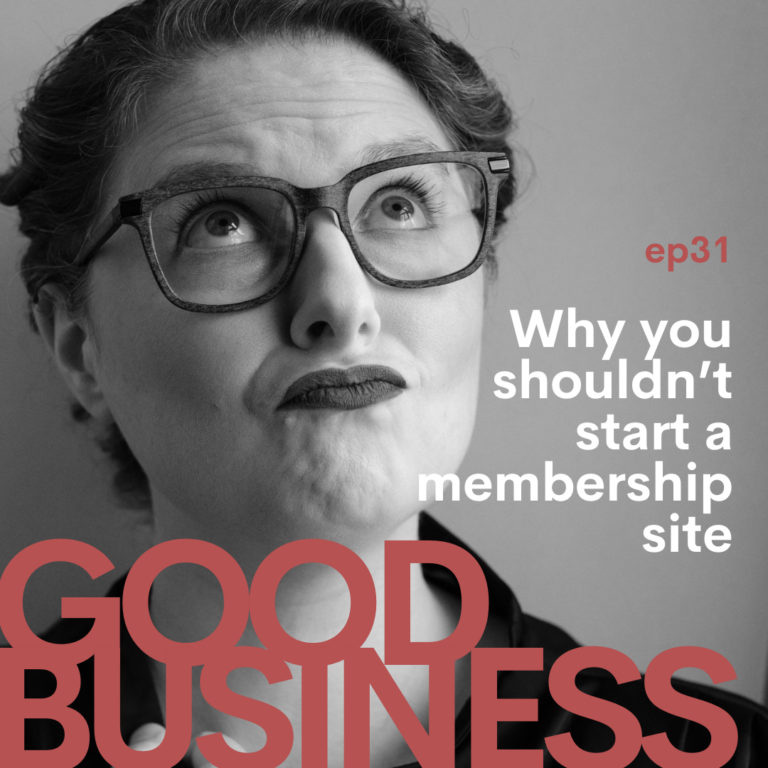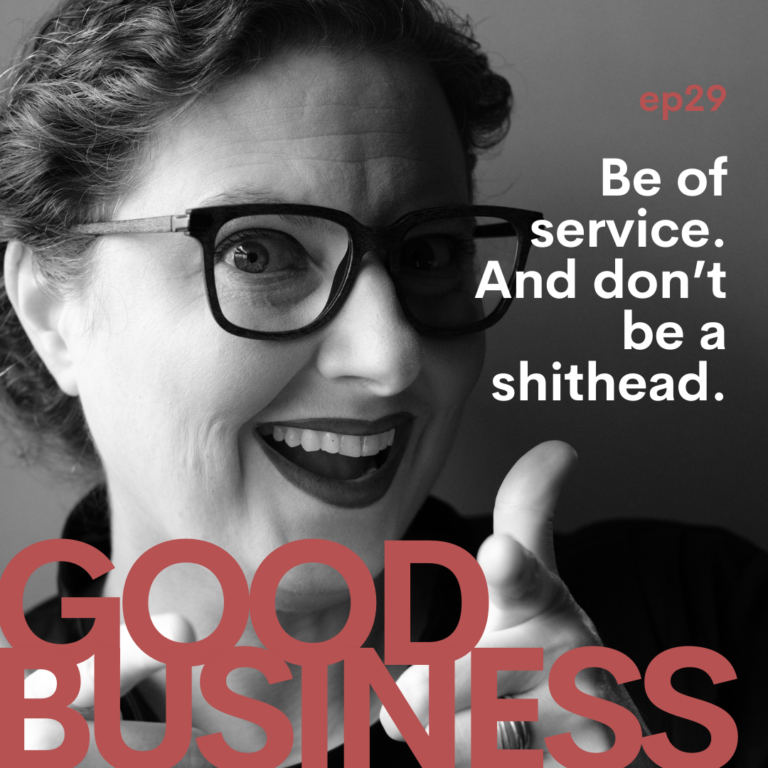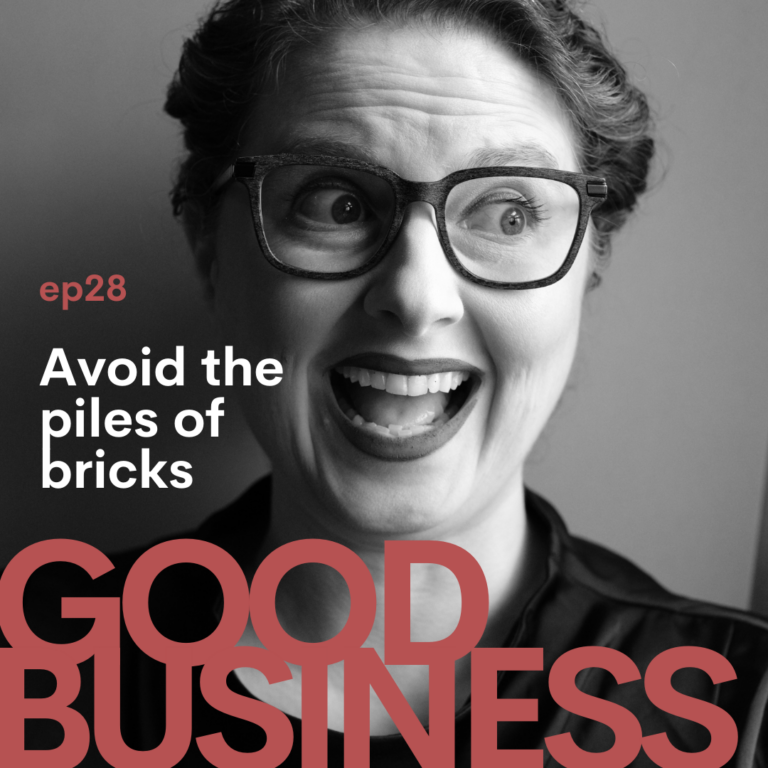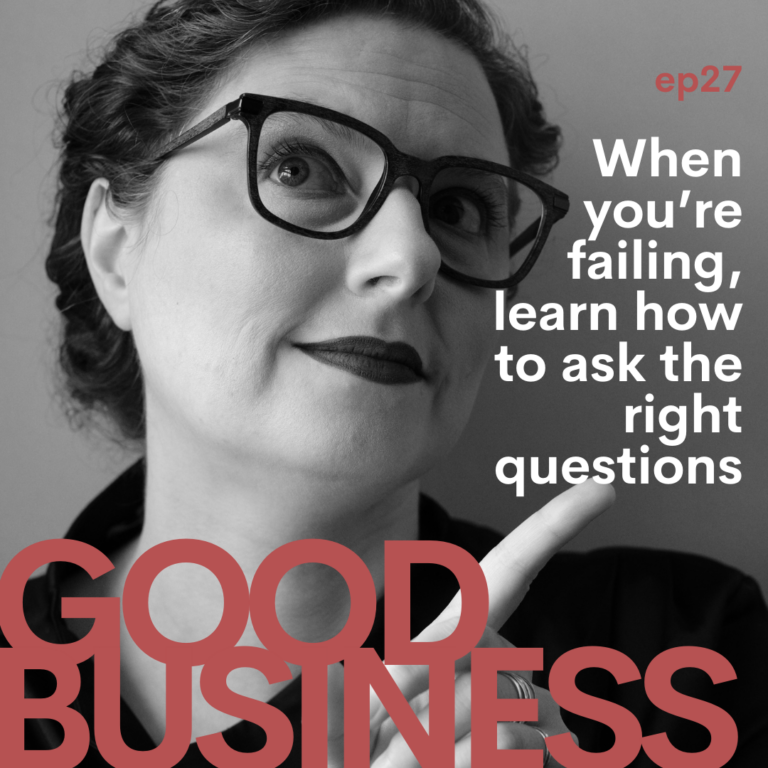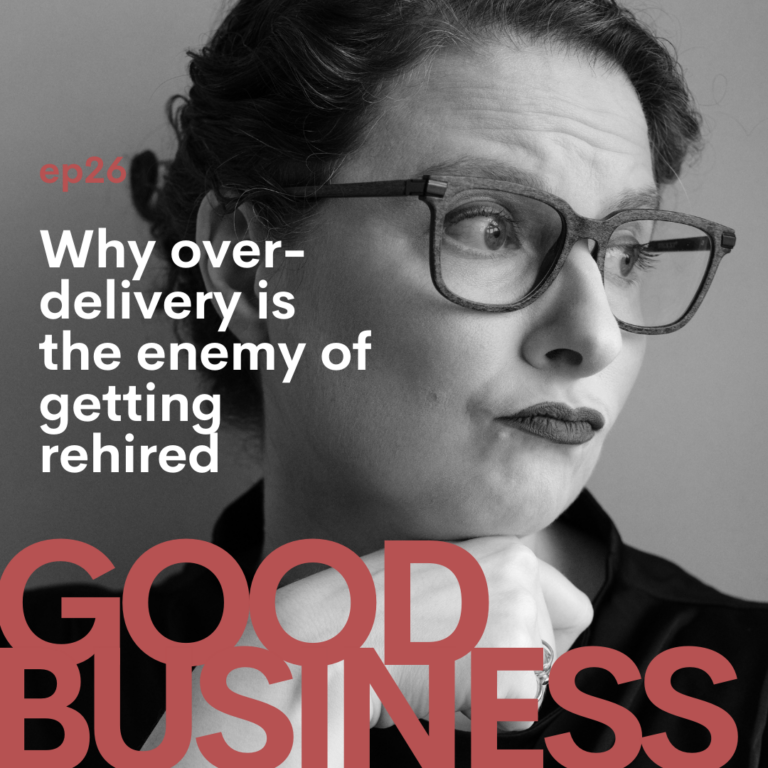In this episode of the Good Business Podcast, we dive into the critical 15 minutes that can make or break a client relationship. Want to know why these first few minutes are so crucial, what should be included, and how to adjust if any steps are missed? Through clear communication and setting mutual expectations, you can already begin building trust and cultivating a collaborative partnership with clients. By getting it right from the start, both parties can ensure a successful and fulfilling long-term relationship. Tune in to this episode to learn how to navigate the initial client interaction with finesse and set yourself up for success.
[NOTE: The transcript below was generated with the help of AI. I do not advocate for the use of AI in copywriting in general, but see it as a useful tool for improving efficient editing of my own creative content. None of the actual content of the episode or the transcript was AI-generated. I just let the computer help me clean up the text so it can be more easily understood and consumed. ~i.]
Welcome back to the Good Business Podcast! I’m your host, Illana Burk, and I’m so delighted to have you here with me today. Today, we’re talking about the 15 most important minutes of a client relationship. And I know you’re dying to know which 15 minutes we’re talking about, and I’m not going to hold you in suspense. We are talking about the first 15 minutes of your very first call or meeting with any new client.
Why are these 15 minutes so critical?
- It’s your very first opportunity to set the tone, set boundaries, and set mutual expectations.
- Getting it right means that your client’s anxieties are waylaid, which are usually higher than you might realize.
- You can set mutual expectations on both sides and build trust very quickly by showing them that you “have them.”
- Showing up and asking a client to set their expectations is different from showing up ready to create a clear partnership. A clear partnership is important for longer-term client relationships.
- Failing to set expectations up front leads to a transactional relationship, where the client is the customer and you are the purveyor. This can lead to problems down the road.
- Leading effectively right from the start validates their choice and is the first step towards keeping the promises you made.
How to make the most of the first 15 minutes:
- Keep your greetings brief.
- Take charge as quickly as possible.
- Tell them exactly how the call is going to go.
- Create an outline for yourself with bullet points including:
- What you know about the person
- Any pain points or concerns
- Red flags they might have mentioned
- Boundaries
- Policies
- Relevant pet peeves
- Common questions
- How to handle bumps in the road
- Boundaries: This is important to do with confidence and a steady voice. It sets the tone for the relationship.
- Policies: Briefly reiterate anything important from your contract.
- Relevant pet peeves: Share yours and ask about theirs. This can help you avoid pitfalls and meet their needs.
- Common questions: Address these to waylay final anxieties.
- Open the floor to how you’ll handle bumps in the road: Be clear about your process and expectations.
- Leave room for correction: Acknowledge that you might forget something and give yourself time to address it at the end.
The goal is to frame out the edges of your working relationship so the person is left with a clear sense of equity and trust. The most important thing to leave them with is that if anything goes wrong, you’ve got them and you’ll confront issues head-on.
I hope this helps you make the most of the first 15 minutes of your client relationships!
More Episodes
Why you shouldn’t start a membership site | GB31
Today's episode is all about how to look a little closer at the ever-growing trend of membership sites all over the place and how to know if you should jump on the bandwagon or not. Episode Transcript: I'm Illana Burk, CEO of...
Four not shocking disappointments in a time of crisis | GB30
Today’s episode is about the simple idea that your business exists not just to support you and your stakeholders, but to support your community.
Be of service and don’t be a sh*thead | GB29
Today's episode is all about how to not be a jerk in the middle of a crisis. Episode Transcript: I'm Illana Burk, CEO of Your Life's Workshop, coach to entrepreneurs and solopreneurs across dozens of industries and host of Good...
Avoid the piles of bricks | GB28
Today, we talk all about that craptastic feeling of being buried. Underwater. Crushed by the weight of big ideas, neverending task lists, and elephant-sized goals. First, we’ll talk about what this really means and the ways in which this feeling tends to show up, along with a little on how we tend to behave as a result. Then we’ll talk about a simple way to handle these moments better. And finally, we’ll wrap up with a healthy pep talk.
When you’re failing, learn how to ask the right questions | GB27
Today’s episode is all about how to not shoot yourself in the foot right out the gate. I’m gonna break down one very common mistake that newbies (and non-newbies) make and how to fix it. Today, we learn how to ask for help and guidance in a way that doesn’t completely fuck up your chances of getting what you ACTUALLY need, which is respect.
Why overdelivery is the enemy of getting rehired | GB26
Today’s episode is all about why over-delivering is a really good way to not get asked back for more work. We all think doing our best and giving more than people asked for is a good thing. And in some ways, it is. Things like adding extra value to something you do is fine. What I’m talking about is when you completely blow the scope of what was asked of you out of the water. It’s one of the hardest things to identify when you’re trying to figure out why no one seems to hire you twice.

